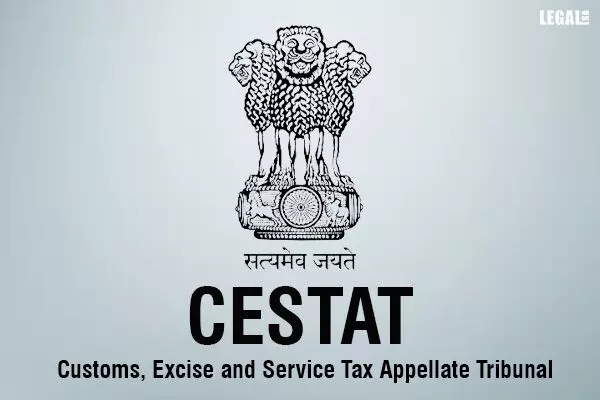- Home
- News
- Articles+
- Aerospace
- Agriculture
- Alternate Dispute Resolution
- Banking and Finance
- Bankruptcy
- Book Review
- Bribery & Corruption
- Commercial Litigation
- Competition Law
- Conference Reports
- Consumer Products
- Contract
- Corporate Governance
- Corporate Law
- Covid-19
- Cryptocurrency
- Cybersecurity
- Data Protection
- Defence
- Digital Economy
- E-commerce
- Employment Law
- Energy and Natural Resources
- Entertainment and Sports Law
- Environmental Law
- FDI
- Food and Beverage
- Health Care
- IBC Diaries
- Insurance Law
- Intellectual Property
- International Law
- Know the Law
- Labour Laws
- Litigation
- Litigation Funding
- Manufacturing
- Mergers & Acquisitions
- NFTs
- Privacy
- Private Equity
- Project Finance
- Real Estate
- Risk and Compliance
- Technology Media and Telecom
- Tributes
- Zoom In
- Take On Board
- In Focus
- Law & Policy and Regulation
- IP & Tech Era
- Viewpoint
- Arbitration & Mediation
- Tax
- Student Corner
- AI
- ESG
- Gaming
- Inclusion & Diversity
- Law Firms
- In-House
- Rankings
- E-Magazine
- Legal Era TV
- Events
- News
- Articles
- Aerospace
- Agriculture
- Alternate Dispute Resolution
- Banking and Finance
- Bankruptcy
- Book Review
- Bribery & Corruption
- Commercial Litigation
- Competition Law
- Conference Reports
- Consumer Products
- Contract
- Corporate Governance
- Corporate Law
- Covid-19
- Cryptocurrency
- Cybersecurity
- Data Protection
- Defence
- Digital Economy
- E-commerce
- Employment Law
- Energy and Natural Resources
- Entertainment and Sports Law
- Environmental Law
- FDI
- Food and Beverage
- Health Care
- IBC Diaries
- Insurance Law
- Intellectual Property
- International Law
- Know the Law
- Labour Laws
- Litigation
- Litigation Funding
- Manufacturing
- Mergers & Acquisitions
- NFTs
- Privacy
- Private Equity
- Project Finance
- Real Estate
- Risk and Compliance
- Technology Media and Telecom
- Tributes
- Zoom In
- Take On Board
- In Focus
- Law & Policy and Regulation
- IP & Tech Era
- Viewpoint
- Arbitration & Mediation
- Tax
- Student Corner
- AI
- ESG
- Gaming
- Inclusion & Diversity
- Law Firms
- In-House
- Rankings
- E-Magazine
- Legal Era TV
- Events
CESTAT: Sub-contractors Providing Taxable Services Not Immune to Levy of Service Tax

CESTAT: Sub-contractors Providing Taxable Services Not Immune to Levy of Service Tax
The appellant had not filed the service tax returns for over five years
The Chennai bench of the Customs, Excise and Service Tax Appellate Tribunal (CESTAT) has dismissed the appeal filed by Apex Viswa Engineering Services Private Limited (appellant), ruling that sub-contractors are not immune from the levy of service tax when they provide taxable services.
The appellant had undertaken the construction of commercial and residential buildings, receiving construction charges accounted as ‘income from contract receipts.’
However, it did not file service tax returns for a period of over five years. Additionally, the customers provided construction materials such as cement and steel free of cost for the services rendered by the appellant.
Despite availing the benefits of abatement provided under Notification No. 1/2006-ST dated 01.03.2006 and the concessional rate of duty prescribed under the Works Contract Composition Scheme, the appellant did not include the value of the free supply materials in its receipts.
The Coram of P. Dinesha (Judicial Member) and Vasa Seshagiri Rao (Technical Member) held that that contractors/sub-contractors were liable for the payment of service tax. They cited the decision in the Sew Construction Ltd vs Commissioner of Central Excise [LQ/CESTAT/2010/3674] case.
The Bench emphasized that it was crucial to include the value of free-supply materials provided by the developer or main contractor when calculating the gross value of services. Failure to do so would result in incorrect computation of tax on the contract receipts, contrary to the provisions of the law.
Since the appellant lacked the documentary evidence to determine the gross value of the services provided, the bench found no fault with the lower adjudicating authority's decision to deny the benefit of abatement under Notification No. 1/2006-ST dated 01.03.2006 and the Works Contract (Composition Scheme for Payment of Service Tax) Rules, 2007.
The bench also noted that non-filing of ST-3 returns for an extended period, specifically from March 2006-March 2010, indicated an intention to evade tax. It justified the invocation of the extended period.



